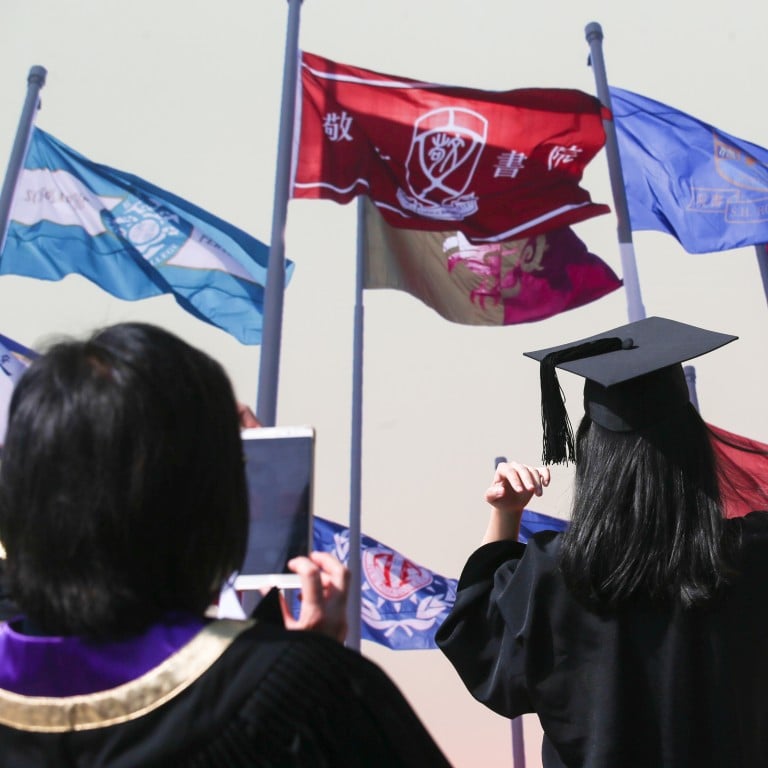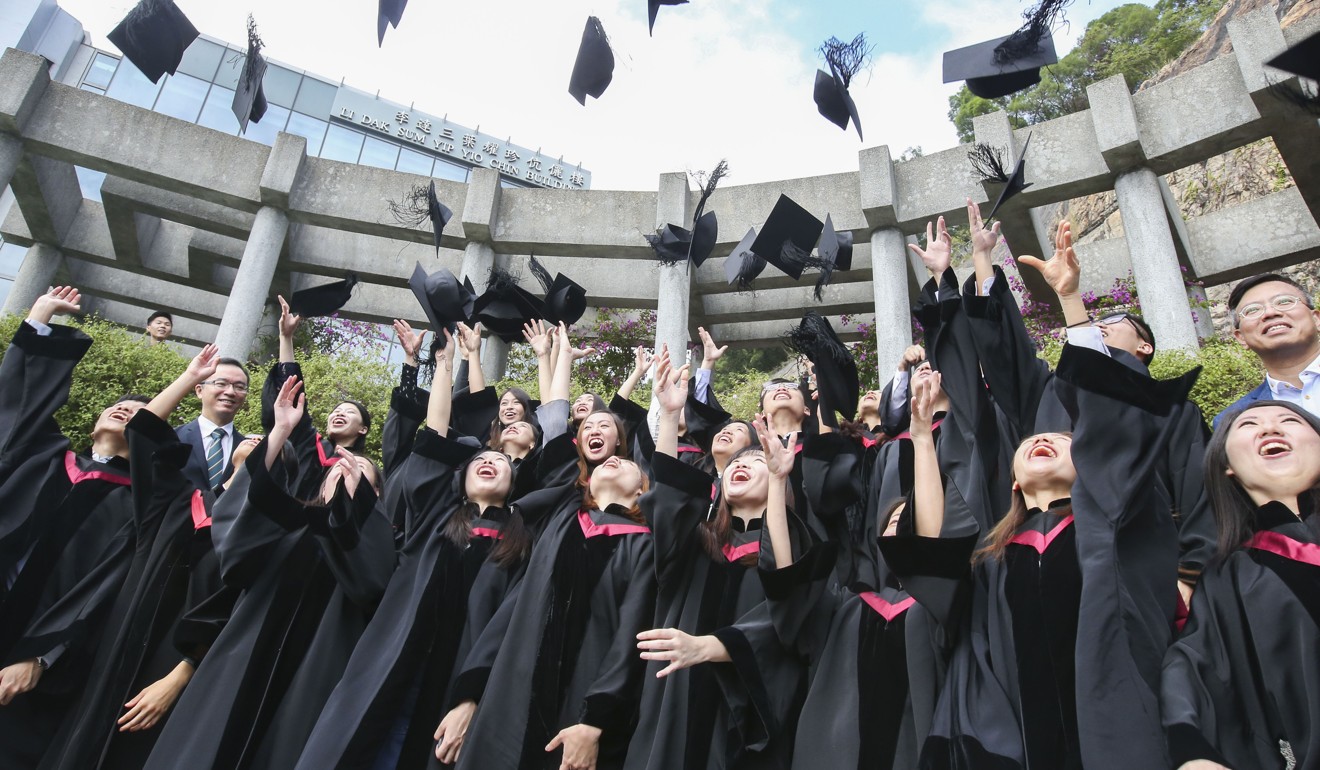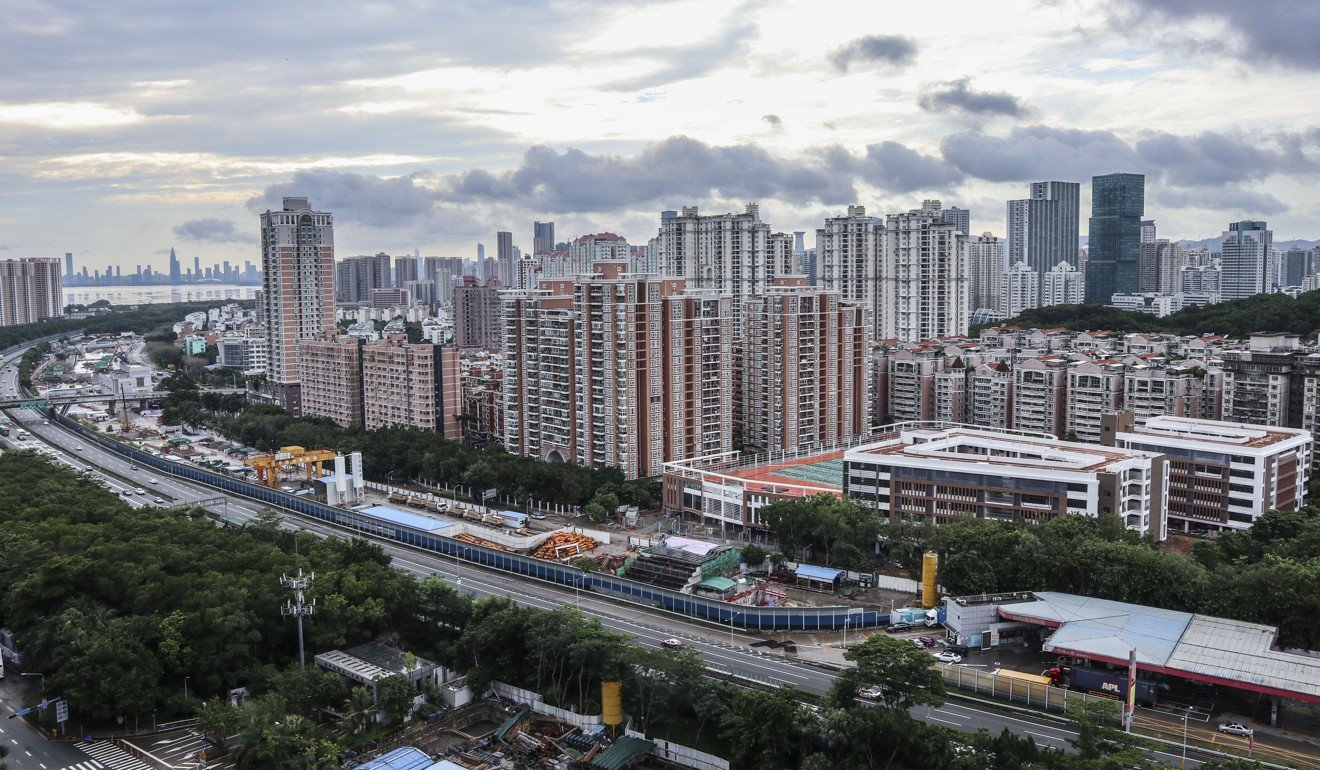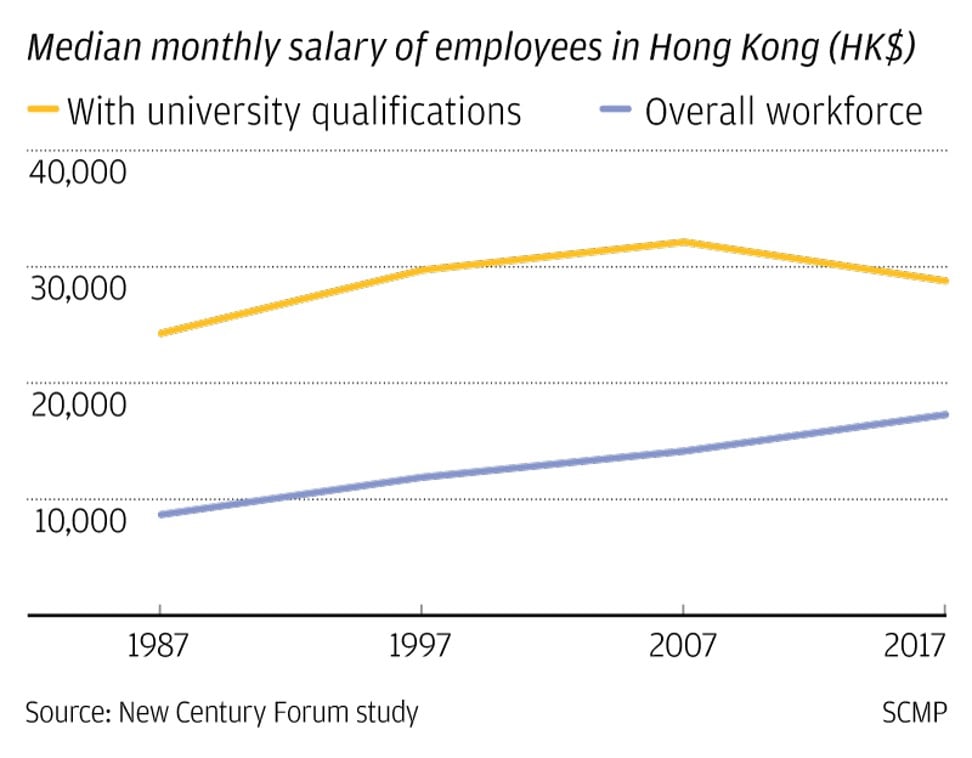
Hong Kong university graduates take home less pay than counterparts 30 years ago and one in six ends up in unskilled job, study finds
- Median monthly starting salary of university graduate was HK$14,395 last year, compared with HK$20,231 in 1987
A degree in Hong Kong can no longer guarantee a decent income, with one in six university graduates taking on low-paid, unskilled work, a study has found.
Fresh university graduates are taking home less pay than they did 30 years ago, according to the study released on Monday, which analysed official data collected as far back as 1987.
The study, by public policy group New Century Forum, showed the median monthly starting salary of a university graduate was HK$20,231 back in 1987. The level sank to HK$15,457 in 1997, dropped further to HK$13,100 in 2012 and only bounced back to HK$14,395 (US$1,842) in 2017.

It was also found that the median salary of employees with university qualifications fell 10.4 per cent over the past decade, from HK$32,133 a month in 2007 to HK$28,790 in 2017. The median salary levels were HK$24,277 and HK$29,726 in 1987 and 1997 respectively.
Singapore’s US$200k starter salaries: why education pays the price
By comparison, the median wage of the overall workforce rose from HK$8,670 in 1987 to HK$17,274 in 2017, or a 99.2 per cent increase over the period.
Researcher Chan Wai-keung, a lecturer at Polytechnic University’s College of Professional and Continuing Education, attributed it partly to “degree depreciation”, triggered by overexpansion in the number of university places, which in turn undermined the quality of the qualification.
According to official statistics, the number of students taking publicly funded sub-degree or undergraduate programmes rose from 65,339 in the 2011-12 academic year to 89,603 in 2017-18, a 37 per cent increase.
“Since the handover [in 1997], the median wage actually dropped 3.1 per cent. We saw no improvement. Instead, our younger generation, especially those born in the 1990s, seem to be worse off than the older generation,” said Chan, also a director of New Century Forum.
“Since the handover [in 1997], the median wage actually dropped 3.1 per cent. We saw no improvement. Instead, our younger generation, especially those born in the 1990s, seem to be worse off than the older generation,” said Chan, also a director of New Century Forum.
In a sense, we are wasting our resources in training so many university students
Chan’s research also found the number of skilled jobs – or professional, administrative and managerial work – had almost tripled, from 247,300 in 1987 to 916,800 in 1997. But the growth had started to slow.
In 2007, there were about 1.22 million such jobs. In 2017, the number was 1.44 million, a rise of 18 per cent.
But during the same period, the number of workers with a university education rose from 131,900 in 1987 to 361,900 in 1997, 676,000 in 2007 and to 1.08 million in 2017. That is, an almost 60 per cent rise in the 10 years to 2017.
“The result is a skills mismatch in the job market. In a sense, we are wasting our resources in training so many university students,” Chan said.

His study showed that more of those with university qualifications were forced to take up “unskilled jobs” such as clerk, sales assistant or assembly worker.
In 1997, some 8.4 per cent of those with university qualifications took up unskilled work. The number however kept rising steadily to 11.4 per cent in 2007 and 16.4 per cent in 2017.
Legislator Michael Luk Chung-hung, of the Federation of Trade Unions, said Hong Kong’s economic structure was too narrow and unbalanced.
With public cash, Hong Kong’s vet school prepares to nearly double intake
“We are too focused on finance and property,” Luk said. “The rising operating costs in Hong Kong, mainly as a result of high rent, also prevent employers from offering reasonably high pay to employees.”


